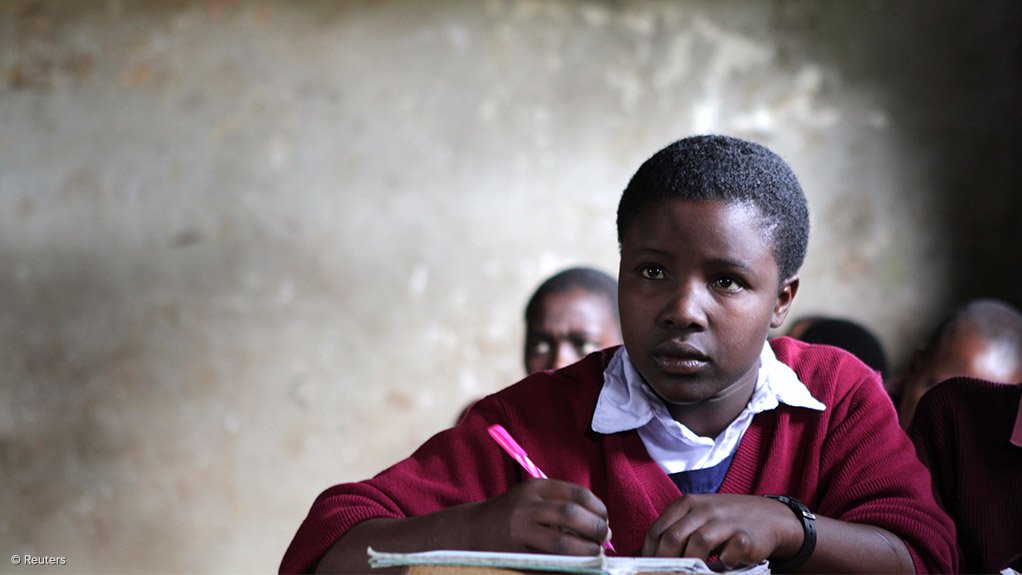/ MEDIA STATEMENT / The content on this page is not written by Polity.org.za, but is supplied by third parties. This content does not constitute news reporting by Polity.org.za.
Statistics South Africa today released Children’s education and well-being in South Africa report; which show that about 43% of youngsters aged 0-6 did not attend any education institution in 2018. The report discusses existing trends on education participation among children aged 0–17 from 2014 to 2018. The report also discusses important characteristics that affect child well-being.
White children aged 0–6 were most likely to attend education institutions compared to black African children (73,4% and 56,6%, respectively).
Gauteng recorded the highest attendance of education institutions among 0-6 years olds in 2018 and lowest in KwaZulu-Natal (66,3% and 46,5%, respectively). The education institution attendance rate was the highest among children aged 6–13, with close to 91% of children in this age group attending primary school, while close to 8% were attending education institutions outside the primary school phase and approximately only one per cent being out of school.
By contrast, in 2018, close to 83% of children, aged 14–17 were attending secondary school, approximately 13% were attending education institutions outside the secondary school phase and close to five per cent were out of school. Grade repetition was more common among 14–17-year-olds compared to 6–13-year-olds, and highest among males compared to females (5,5% and 10,7%, respectively) in 2018.
Approximately one-third (33,7%) of South Africa’s population were children under the age of 18 years in 2019. Among these under-18-year-olds, approximately 41% were 0–6-year-olds, almost 40% were 7–13-year-olds, and roughly 20% were 14–17-year-olds. KwaZulu-Natal and Gauteng were home to the majority of children in the country.
“In South Africa, grant income was one of the main sources of household income, with the main ones being the child support grant and the old-age grant,” said the Statistician-General Mr Risenga Maluleke. Two-quarters of children aged 0–17 (67%) lived in households with multiple members who were recipients of social grants in 2018. In 2018, more than two-thirds of children aged 0–17 (68,2%) received the child support grant, with black African children being the largest beneficiary of this grant (73,4%).
in 2015, 62,1% of children aged 0–17 were classified as multi-dimensionally poor, while more than half of these children (51,0%) were classified as money-metric poor.
Eastern Cape in 2018, recorded the largest percentage of children who were recipients of the child support grant and Limpopo recording the second largest. In the same year, almost half (48%) of children aged 0–17 received monthly total household social grant amounts of R1 001–R4 000, and almost one-third (32,9%) of children aged 0–17 lived in households that earned monthly total household income amounts of R1 001–R4 000.
The report further shows that Limpopo was home to the most multi-dimensionally deprived children aged 0–17 in 2015. Children staying in households with uneducated or poorly educated household heads and in female-headed households were the most deprived in 2015.
Children in South Africa live in non-standard family structures with mostly one of their biological parents. Meanwhile in 2018, twice as many children had a co-resident mother compared to those who had a co-resident father (76% and 36,4%, respectively).
Furthermore, black African children aged 0–17 were less likely to stay with their biological father compared to their peers in the other population groups.
A child's birth certificate is a key document required for children to access various services such as healthcare, welfare, and education. The report shows a national average of 93,8% of birth registrations within the year of birth in 2018, KwaZulu-Natal, Gauteng, and Eastern Cape lag behind in the birth registration process.
In 2019, the under-five mortality rate was estimated at 30 deaths per 1 000 live births and the infant mortality rate was estimated at 22,1 per 1 000 live births, showing that South Africa is on track to achieve the NDP targets at least. However, child deaths were still high in South Africa and child deaths due to non-natural causes were on the rise. In 2017, non-natural causes of death among children aged 5–9 rose to 39,1% from 23,8% in 2007. The percentage of toddlers aged 1–4 who died from non-natural causes more than doubled from 10,9% in 2007 to 22,4% in 2017. Similarly, non-natural deaths among under-one-year-old children rose from 2,6% in 2007 to 3,4% in 2017.
Issued by Statistics South Africa
EMAIL THIS ARTICLE SAVE THIS ARTICLE ARTICLE ENQUIRY
To subscribe email subscriptions@creamermedia.co.za or click here
To advertise email advertising@creamermedia.co.za or click here











